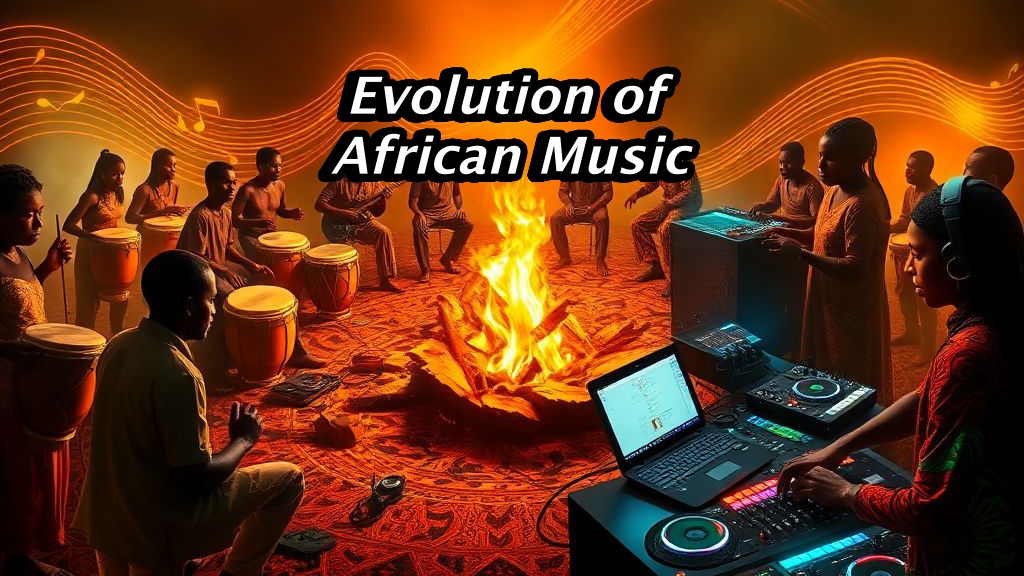The Evolution of African Music: From Ancient Rhythms to Global Sounds
The evolution of African music is one of the most powerful cultural journeys in the world. From traditional African instruments and ancient rhythms to Afrobeat, Afrobeats, and Amapiano, African music has shaped not only the continent’s identity but also global sounds. Every beat tells a story of African cultural heritage, resilience, and creativity.
🎵 Ancient Rhythms and Traditional African Instruments
The history of African music begins with traditional African instruments like the djembe drum, mbira, and kora. These instruments carried deep spiritual meaning and were used in storytelling, rituals, and community gatherings. African rhythms were built on call-and-response, layered beats, and communal participation. This foundation of African cultural heritage continues to influence modern African music genres today.
🌍 Colonial Influence and Early Fusion
During colonization, African musicians blended African music genres with imported instruments such as guitars and brass. This led to new sounds like highlife music in Ghana and soukous in Congo, showing the evolution of African music as it adapted while preserving traditional rhythms. These genres were stepping stones to later innovations like Afrobeat and modern Afrobeats.
🎸 Rise of Popular African Music Genres
By the mid-20th century, African artists pioneered new movements that would define modern African music:
- Afrobeat: Created by Fela Kuti, mixing Yoruba rhythms with jazz, funk, and political messages.
- Mbaqanga & Kwaito: South African genres blending local culture with jazz and house, paving the way for today’s Amapiano South Africa movement.
- Gnawa music in Morocco: A fusion of ritual chants, trance rhythms, and Sufi spirituality.
These African music genres demonstrated the evolution of African music into diverse, global expressions.
🎶 African Diaspora and Global Influence
Through the African diaspora, African rhythms crossed oceans and shaped genres like blues, jazz, samba, reggae, and hip hop. The influence of African music on global music is undeniable — without African music history, there would be no jazz or hip hop. The African diaspora music legacy ensured that the essence of African cultural heritage remains alive worldwide.
💿 Modern African Music: Afrobeats, Afro House, Amapiano
Today, modern African music dominates playlists worldwide. Nigerian Afrobeats stars like Burna Boy and Wizkid headline festivals, while South Africa’s Amapiano music spreads globally. Genres like Afro House blend electronic beats with traditional African instruments. Collaborations with global stars show that African music genres are no longer just influences — they lead global trends. The evolution of African music continues with digital tools, streaming platforms, and AI-powered creativity.
🔮 The Future of African Music
The future of African music is limitless. With the rise of Afro-fusion, modern African music genres, and continued African diaspora music connections, the sound of Africa will keep reshaping the global stage. The evolution of African music proves that Africa’s heartbeat — rhythm, storytelling, and cultural heritage — will always inspire the world.
🌟 Final Thoughts
The evolution of African music is a story of African rhythms, traditional African instruments, and innovation across centuries. From ancient African music to Afrobeat, Afrobeats, Afro House, and Amapiano, Africa’s sound has become the world’s sound.

No responses yet